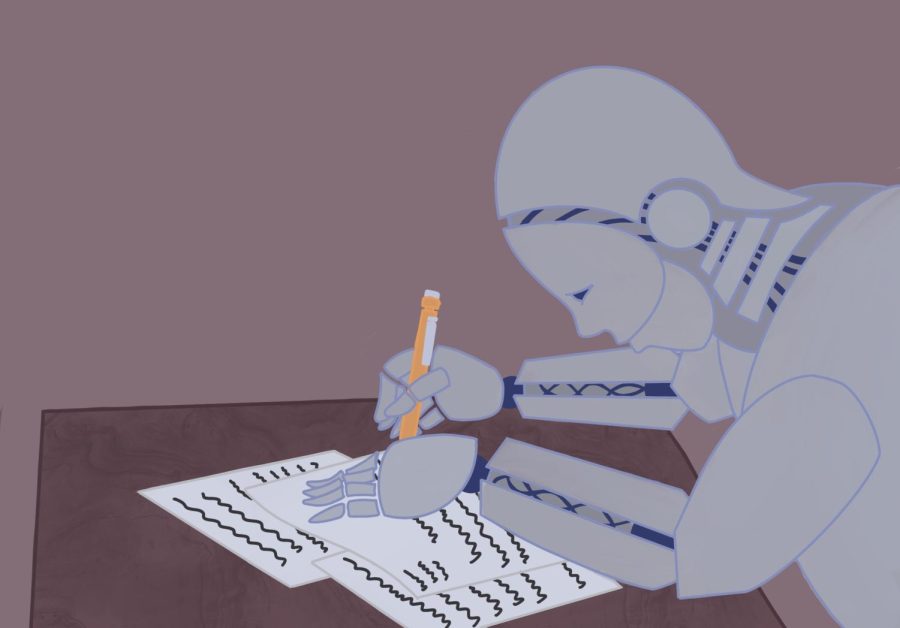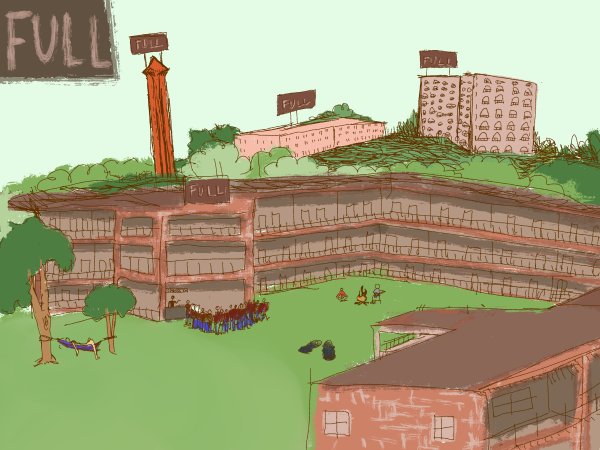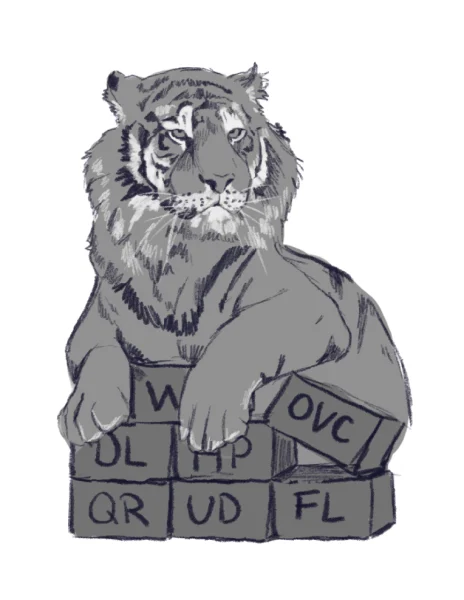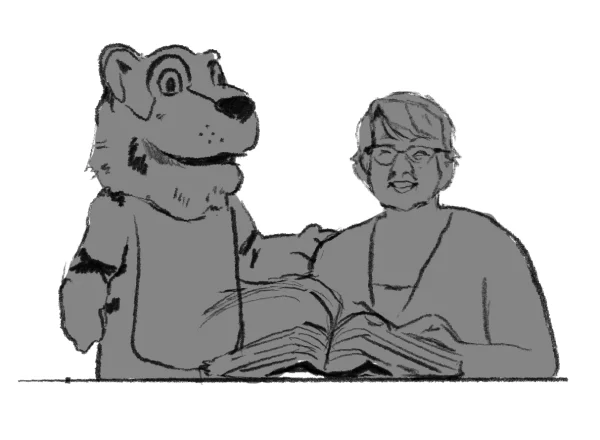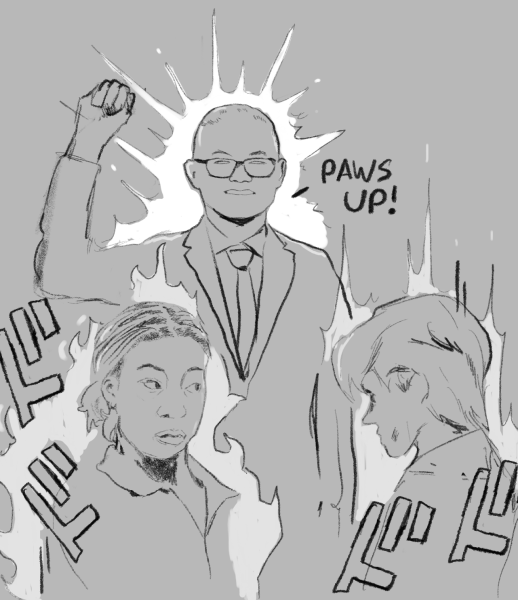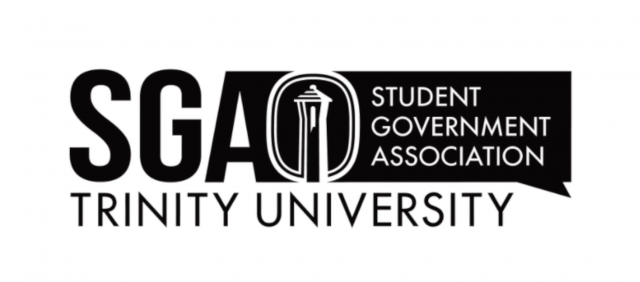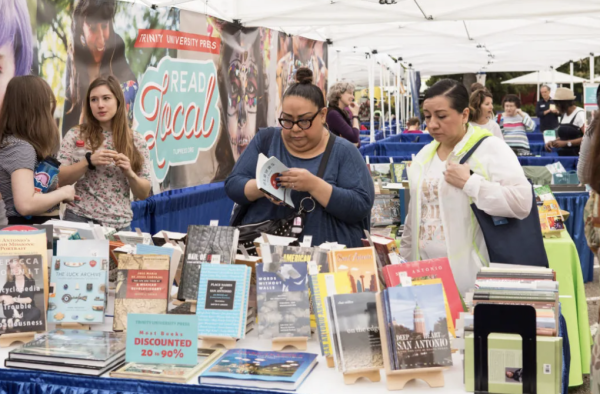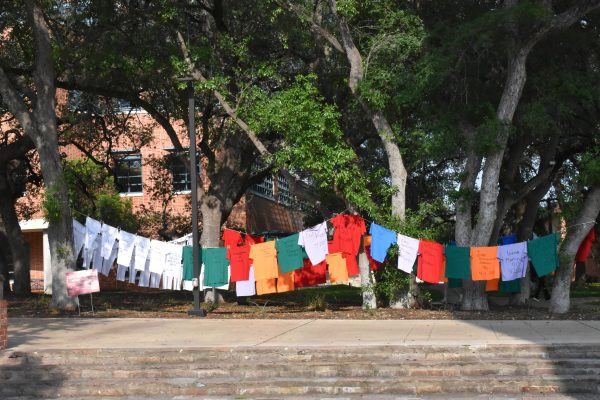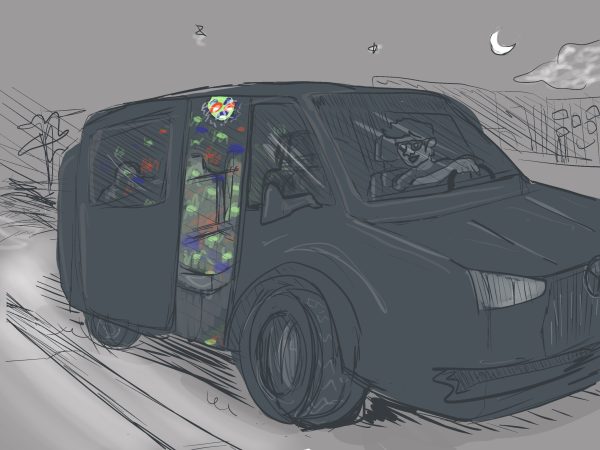ChatGPT redefines the future of knowledge
Trinity professors discuss how artificial intelligence will impact education and more in coming years
In November 2022, the artificial intelligence company OpenAI released “Chat Generative Pre-trained Transformer” (ChatGPT), an intelligent chatbot, as part of the GPT-3 AI models. AI programs at Trinity have been used in the classroom since their introduction, as Althea Delwiche, chair of the department of communication, has expressed. Delwiche encourages using AI as a tool, but always remember to make it your own work.
“Always be thinking about … ‘what is the human bringing to this?’” Delwiche said.
ChatGPT is incredibly sophisticated in its language compared to other AI. Its ability to write somewhat well-written stories, essays and articles has brought the effect of its usage in universities into question. While people’s opinions on the extent to which ChatGPT should be used in universities vary, the general consensus is clear: embracing ChatGPT — and other artificial intelligence — in academia is inevitable.
The arrival of essay-writing AI is here, so for universities, particularly liberal arts universities like Trinity, the issue is how to implement them in a reasonable and fair way. The risks of allowing AIs like ChatGPT into academia are clear: students may cheat. However, Delwiche believes that restricting ChatGPT as a preventative measure is pointless.
“I do think AI programs can be used for cheating, but I’m personally not convinced that creating a surveillance network is the way to deal with it. I am not at all personally a fan of strategies of policing it,” Delwiche said.
Attempting to restrict ChatGPT’s use in schools, some argue, may be entirely futile to begin with. “When you look at [when] technology is integrated, it’s very unusual for people to shut down a technological movement,” Timothy Appignani, visiting assistant professor in the communications department, said.
There’s the issue of fairness, too. ChatGPT might be incredibly detrimental to humanities departments, but for the computer science and communication departments, ChatGPT may prove to be a beneficial resource.
“If we’re teaching or allowing students to use it in one discipline, then it’s going to be really hard for people to disallow the use in other disciplines,” Appignani said. “I think that’s something we should consider. … [That’s] what I’m worried about — that it’s fair to all professors.”
Appignani also urges us to approach this implementation cautiously, for although ChatGPT will be necessary, the impact that ChatGPT will have on universities is huge.
“It’s problematic for us to just jump into it, embrace it overall. Not because I think we won’t have to embrace it, but because I think that in order for us to do that, we should really have a conversation about the ways in which this will change teaching,” Appignani said.
The introduction of ChatGPT forces professors to question the nature of their teaching. By embracing ChatGPT, teachers must change their understanding of assessing student work.
“If we are going to embrace ChatGPT, it changes — in very fundamental ways — our views of learning versus assessment,” Appignani said.
This new view of “learning vs. assessment” points to a greater change in our understanding of writing and knowledge. Eva Tuba, visiting assistant professor in computer science, makes the connection between ChatGPT’s impact on universities and society as a whole.
“We need to change and adjust the way we give homework and tasks and [our understanding of] what knowledge is actually,” Tuba said.
This difference in approaching knowledge will spill outside of the academic world. Habiba Noor, visiting assistant professor in education, emphasizes the greater cultural impact ChatGPT will have.
“The whole culture’s relationship to writing and language is going to change,” Noor said.
However, this transformation of our relationship with writing and our understanding of knowledge is nothing we haven’t experienced before. Noor stresses this point, emphasizing the importance of embracing AI as a tool.
“The research people have access to is very different now than it was thirty years ago. I didn’t have Google Scholar. … The role of facts has changed because all of those facts are Google-able,” Noor said.
Noor compares this transition to AI in the writing world to the use of calculators in the math world.
“It’s like with math. You don’t need to know how to add and subtract if you know how to press buttons, but we still learn how to do it,” Noor said. “I think that with AI, no one’s going to have to know how to write a five-paragraph essay, but we’re going to have to do it.”
Aside from the philosophical view of how ChatGPT will alter our relationship with writing and language, these programs also pose a real threat to teachers and jobs, and it’s still important to consider these consequences. At an academic level, Appignani questions the effect this change will have on the pool of professors.
“Part of what you love about being a teacher is also the experience of that, and if teaching itself is changed in really dramatic ways, then there may be people who don’t want to do it anymore,” Appignani said.
Beyond academia, ChatGPT pushes the issue of future employment too, and Tuba argues that this is what we should be focusing on.
“People are so scared about whether students will cheat or not, but I think there’s a larger question that’s not new. … The people whose jobs the AI can take, they’re already with [less] education and without a lot of opportunity. … What happens to them?” Tuba said.
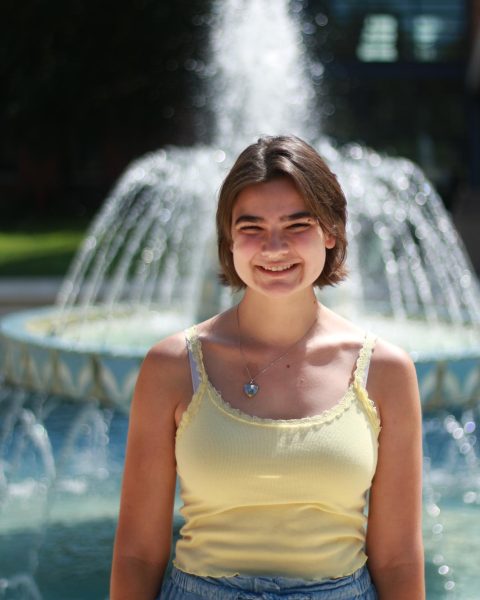
Hi! My name is Samara Gerstle (she/her), and I’m the news section editor for the Trinitonian this year! I’m a sophomore, and this is my second year...
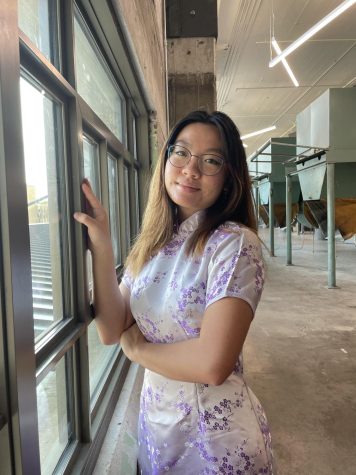
Hi guys! My name is Lily Zeng, and I am a sophomore from Memphis, TN majoring in Urban Studies with an interest in a Spanish major or minor. My favorite...

